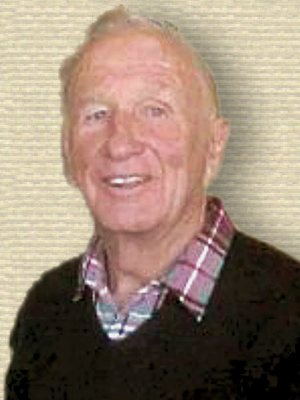 (source)
(source)
|
Edward Lorenz
(23 May 1917 - 16 Apr 2008)
American mathematician and meteorologist who was a pioneer of chaos theory, and originated the expression “butterfly effect” for the way in which huge changes in outcome may result from tiny changes in initial conditions.
|
Science Quotes by Edward Lorenz (5 quotes)
Finite systems of deterministic ordinary nonlinear differential equations may be designed to represent forced dissipative hydrodynamic flow. Solutions of these equations can be identified with trajectories in phase space. For those systems with bounded solutions, it is found that nonperiodic solutions are ordinarily unstable with respect to small modifications, so that slightly differing initial states can evolve into considerably different states. Systems with bounded solutions are shown to possess bounded numerical solutions.
A simple system representing cellular convection is solved numerically. All of the solutions are found to be unstable, and almost all of them are nonperiodic.
The feasibility of very-long-range weather prediction is examined in the light of these results
A simple system representing cellular convection is solved numerically. All of the solutions are found to be unstable, and almost all of them are nonperiodic.
The feasibility of very-long-range weather prediction is examined in the light of these results
— Edward Lorenz
Abstract from his landmark paper introducing Chaos Theory in relation to weather prediction, 'Deterministic Nonperiodic Flow', Journal of the Atmospheric Science (Mar 1963), 20, 130.
If the flap of a butterfly’s wings can be instrumental in generating a tornado, it can equally well be instrumental in preventing a tornado.
— Edward Lorenz
In talk presented at the 139th Annual Meeting in Washington, D.C. of the American Association for the Advancement of Science (29 Dec 1972). The text of the talk, in its original form, as then prepared for press release but unpublished, is in Edward Lorenz, Essence of Chaos (1995), Appendix 1, 181.
Mathematicians seem to have no difficulty in creating new concepts faster than the old ones become well understood.
— Edward Lorenz
Acceptance Speech for the Kyoto Prize (1991), 'A scientist by choice'. On kyotoprize.org website.

Predictability: Does the flap of a butterfly’s wings in Brazil set off a tornado in Texas?
— Edward Lorenz
Title of paper presented at the 139th Annual Meeting in Washington, D.C. of the American Association for the Advancement of Science (29 Dec 1972). The text of the talk, in its original form, as then prepared for press release but unpublished, is in Edward Lorenz, Essence of Chaos (1995), Appendix 1, 181. Note: Webmaster has been unable to find a verbatim source for a widely circulated variant, namely: The fluttering of a butterfly’s wing in Rio de Janeiro, amplified by atmospheric currents, could cause a tornado in Texas two weeks later. That form is given in Laura Nader, Naked Science: Anthropological Inquiry Into Boundaries (1996), 209. However, it appears in a sentence as narrative, without quotation marks, and has no citation. Webmaster believes it may be the concept restated by Nader in her own words. Webmaster has not yet found any earlier printed, cited or verbatim example in the wording of the variant. If you know a primary source for this variant, please contact Webmaster.
We see that each surface is really a pair of surfaces, so that, where they appear to merge, there are really four surfaces. Continuing this process for another circuit, we see that there are really eight surfaces etc and we finally conclude that there is an infinite complex of surfaces, each extremely close to one or the other of two merging surfaces.
— Edward Lorenz
An intermediate thought about some surface in state space, while evolving his Prototype Model of Chaos. In 'Deterministic Nonperiodic Flow', Journal of Atmospheric Science (1963), 20, 130–141. As quoted and cited in: T.N. Palmer, 'Edward Norton Lorenz: 23 May 1917—16 April 2008', Biographical Memoirs of Fellows of the Royal Society (2009) 55, 144.
See also:






 In science it often happens that scientists say, 'You know that's a really good argument; my position is mistaken,' and then they would actually change their minds and you never hear that old view from them again. They really do it. It doesn't happen as often as it should, because scientists are human and change is sometimes painful. But it happens every day. I cannot recall the last time something like that happened in politics or religion.
(1987) --
In science it often happens that scientists say, 'You know that's a really good argument; my position is mistaken,' and then they would actually change their minds and you never hear that old view from them again. They really do it. It doesn't happen as often as it should, because scientists are human and change is sometimes painful. But it happens every day. I cannot recall the last time something like that happened in politics or religion.
(1987) -- 


